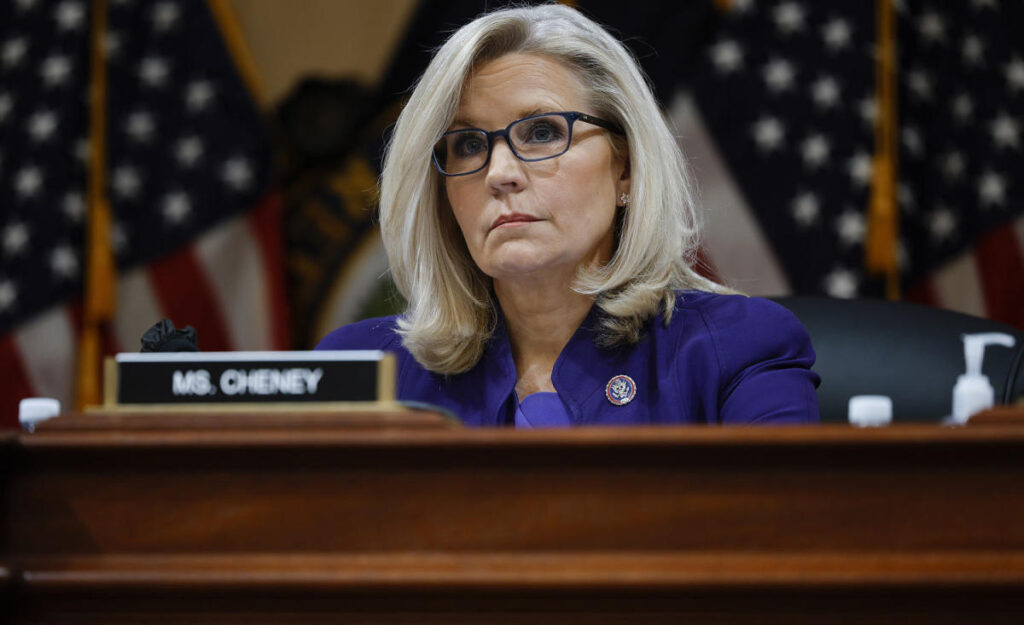In a recent development, a Republican chairman has called for an FBI investigation into former Representative Liz Cheney for her role in the January 6th Capitol riot probe. This request comes from Rep. Barry Loudermilk, R-Ga., who has released an interim report indicating that Cheney, the former Vice Chair of the January 6 Select Committee, may have violated federal laws during the investigation. The report claims that Cheney improperly communicated with witness Cassidy Hutchinson without her legal counsel’s knowledge, potentially tampering with her testimony, which Republicans allege could amount to perjury. Such accusations, if substantiated, could pose serious legal ramifications for Cheney.
The report alleges that Cheney’s ties to Hutchinson included helping her obtain new legal representation, coupled with secret communications that Republicans claim occurred without proper legal oversight. However, the report fails to detail what was discussed between Cheney and Hutchinson during these private conversations. Cheney has vehemently refuted these allegations, asserting that the January 6 events revealed former President Donald Trump’s inherent nature and leadership failures. She argues that the work of the Select Committee was thorough and grounded in substantial evidence, contrasting sharply with the claims made in Loudermilk’s interim report.
Cheney’s rebuttal extends to the legitimacy of the testimonies gathered during the hearings, where both Republican and Democratic witnesses provided extensive accounts of the events surrounding January 6. She emphasized the depth of investigation undertaken, referring to the comprehensive documentation and reports produced by the committee, which the Department of Justice has independently corroborated. This response highlights a broader narrative move aimed at preserving the image of the committee’s investigative integrity amidst mounting criticism from Republican factions seeking to deflect accountability away from Trump.
In a statement addressing the allegations against Hutchinson, her attorney, William H. Jordan, labeled the claims as unfounded and emphasized Hutchinson’s independent choice to change her legal representation. He asserted that Hutchinson remains committed to truthfulness about her testimony and the events of January 6, countering any assertions that would undermine her credibility and motivations. This defense of Hutchinson’s character and testimony suggests a robust willingness to withstand the ongoing scrutiny and political machinations attempting to discredit her contributions to the investigation.
Reacting to the controversy, Trump has voiced his opinion, suggesting through social media that Cheney could face serious consequences stemming from the subcommittee’s findings. His comments reflect a broader tendency among members of the Republican Party to rally against the committee’s actions and the broader narrative of accountability regarding the January 6 incident. This dynamic has fueled ongoing tensions between Cheney and other Republican leaders who have retaliated against her for her outspoken criticism of Trump and her integral role on the committee.
Throughout this complex political landscape, Hutchinson’s testimony has stood out for its clarity and critical nature, providing eyewitness accounts of President Trump’s actions leading up to January 6. While some Republican figures have attempted to discredit her, her statements have received significant validation from other sources, further complicating the Republican narrative that seeks to downplay the actions taken by Trump leading to the insurrection. With the legal and reputational stakes high, the coming days will be pivotal for Cheney and members of the January 6 committee as they contend with these challenges and navigate the charged political environment surrounding the fallout from that day.

